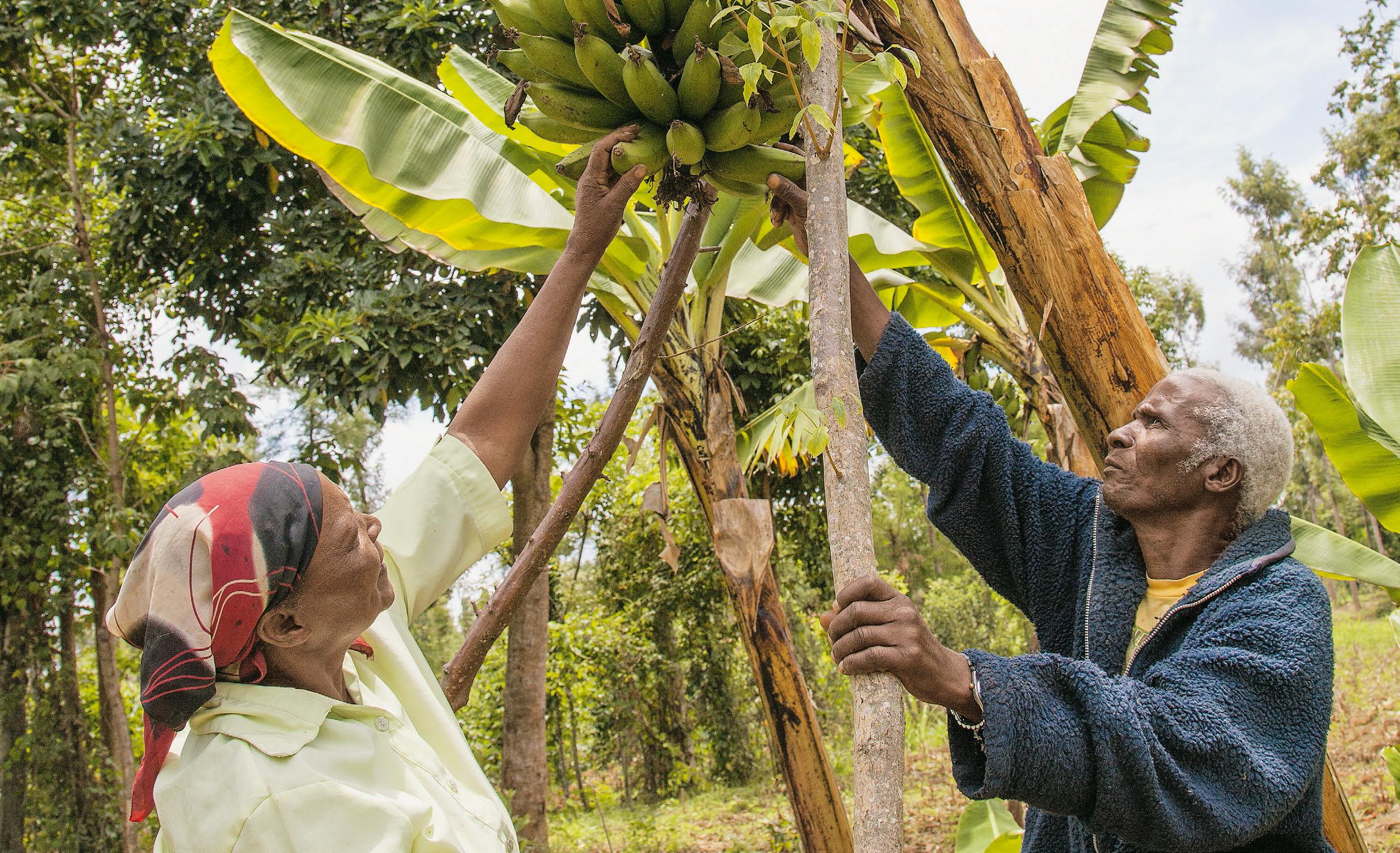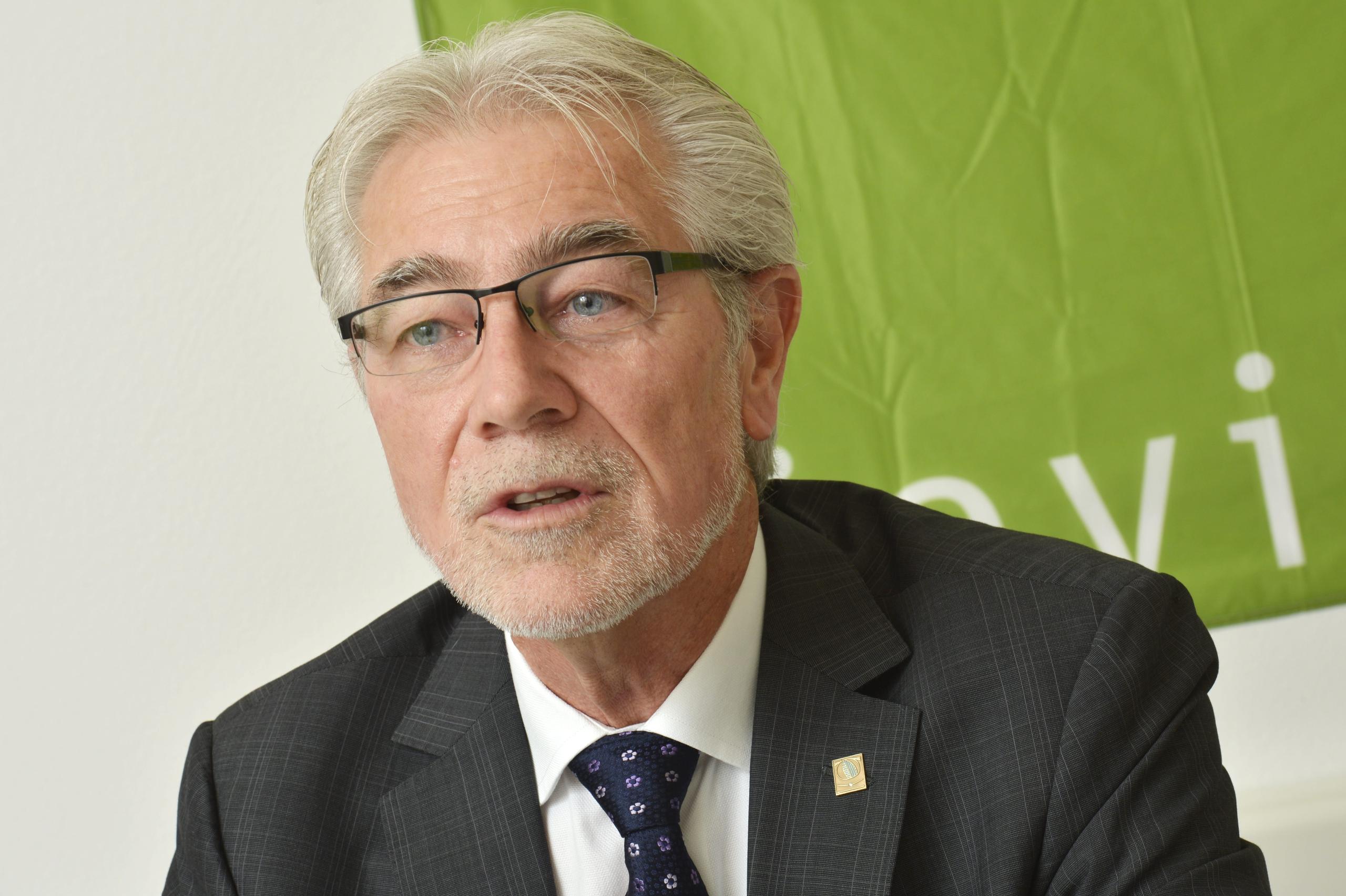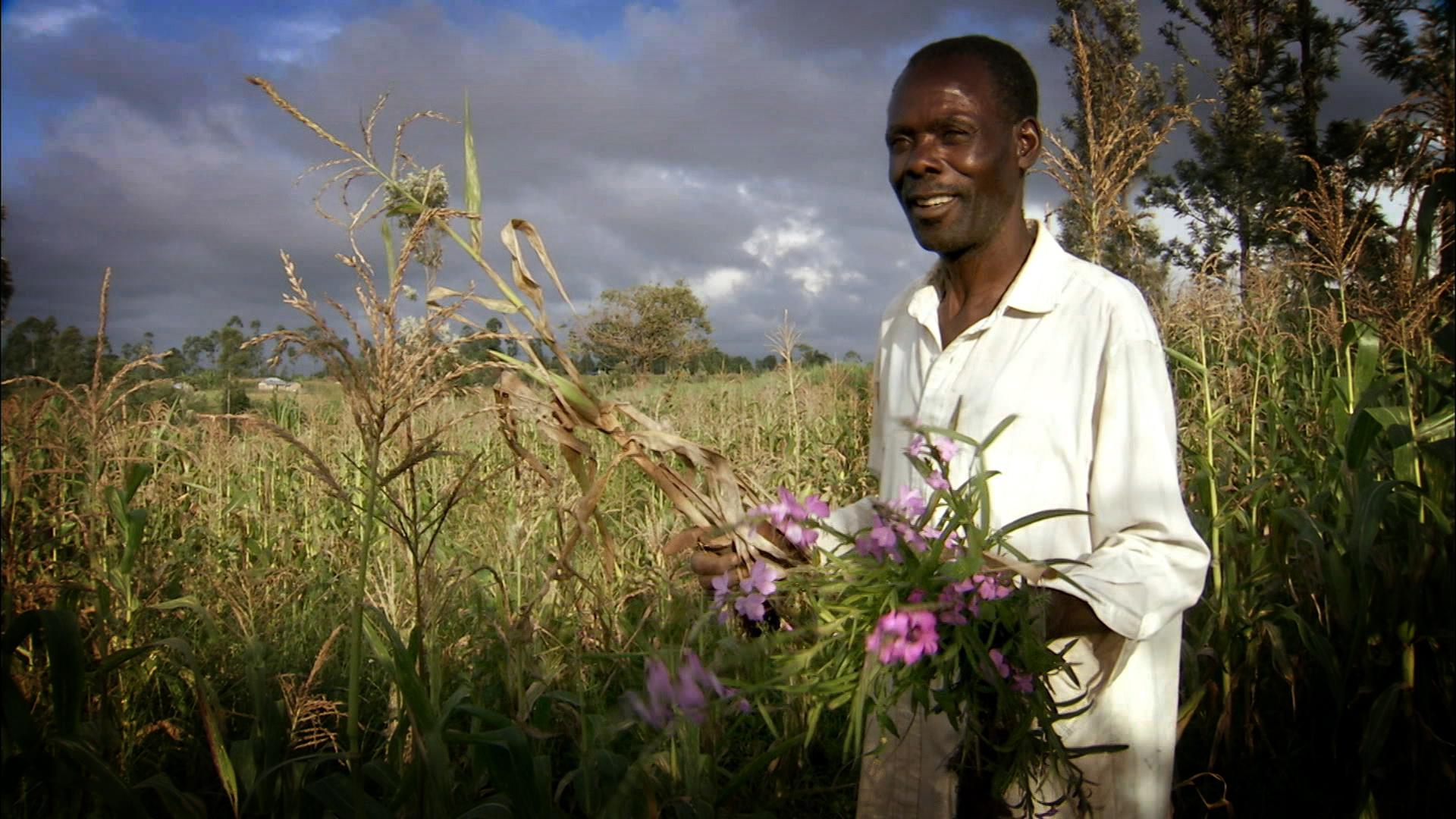‘Why shouldn’t a farmer make more than a lawyer?’

A distinguished speaker at the Milan World’s Fair, Swiss entomologist Hans Rudolf Herren says we can keep feeding the planet if we reform the world’s food processing system and value the work of small farmers.
How can we provide the whole of mankind a healthy, adequate and sustainable food supply? Hans Rudolf Herren, president of the Biovision External linkFoundation and the Millennium InstituteExternal link in Washington, is one of the experts invited to tackle this question posed by the Milan World’s FairExternal link. The Swiss entomologist and biologist has won several international prizes for his research and development work on techniques of organic farming, which have helped save millions of lives in Africa.

swissinfo.ch: According to forecasts, the world population will top nine billion by 2050. Can the planet feed all these people?
Hans Rudolf Herren: Yes, because we are already producing enough food to meet the needs of ten or even 12 billion people. The question is really where, how and what to produce. Right now, too much is being produced in some regions of the world, and not enough in others.
In the northern part of the world and in some emerging economies, there is a surplus in the production of particular foodstuffs – like corn, cereals, rice, soya and rapeseed – which are mainly used for making biofuels, animal fodder, starch and sugar (which we do not need). In most southern countries, however, there is a great untapped potential for producing more.
So we need to rebalance the world food and economic system. Current production exceeds our need for food, but millions of people are still dying of hunger – which means the current system doesn’t work.
swissinfo.ch: So how can we change the world food system?
H.R.H.: We need clear political decisions. This year, there are two major events on the international agenda: in September, the UN summit in New York, which will set sustainable global development goalsExternal link after 2015, and in December, the world climate summitExternal link in Paris. These two events will provide a unique opportunity for radical change in the field of agricultural production – moving from conventional, intensive agriculture, which exhausts the earth with chemical substances and produces huge quantities of CO2, to a kind of agriculture that is sustainable, regenerative and in harmony with nature.
Hans Rudolf Herren
Born in 1947 in canton Valais, Hans Rudolf Herren studied agriculture and biology at the Federal Institute of Technology ETH Zurich and the University of California, Berkeley.
During his 27 years at the International Institute of Tropical Agriculture in Ibadan, Nigeria, and the International Centre of Insect Physiology and Ecology in Nairobi, Kenya, he led the world’s most important programmes of biological action against parasites.
He had notable success using wasps to eradicate the mealy bug, a parasite that was ruining the manioc crop in Africa and threatening the lives of 200 million people.
Herren has been recognised several times for his research and development work. He won the World Food Prize in 1995, the Brandenberger Prize in 2002, and in 2013, the Right Livelihood Award, considered the alternative Nobel Prize. He won the Swiss Award in 2014.
In 1998, he started the Biovision Foundation, which promotes the development and diffusion of green methods of agriculture in numerous developing countries, aiming to improve living conditions and reduce poverty among local populations.
This is a chance that has to be grasped because there is no time to lose if we want to save our earth, produce enough to feed the world and curb climate change. We have shown that it is possible to increase production with a kind of agriculture that respects the environment. Now it is time to take rapid, concrete decisions. The right to a healthy and adequate food supply is a fundamental principle recognised by the Universal Declaration on Human Rights. Governments need to shoulder their responsibilities to ensure food security for all.
swissinfo.ch: What could hold back the transformation you want to see?
H.R.H.: Powerful economic and financial interests are influencing political choices. In Europe and North America, the food industry is heavily subsidised, from growing crops to exporting them. In the port of Mombasa, you can buy corn from the US that costs a third of that produced in Kenya. This is how local production and markets are ruined.
In the countries of the south, many governments are influenced by multinationals, large private foundations and some development partners who market genetically modified seeds, insecticides, pesticides and chemical fertilisers. With these methods of agriculture, there is not only a danger to the environment and health, but they create financial dependence among the farmers, who often have to go into debt to buy these products.
swissinfo.ch: So what are the alternatives?
H.R.H.: We need systemic change to the food processing model. Currently, throughout the world, there is a growing trend of simplification. Intensive single crops that will produce foodstuffs generating a large profit are favoured. They are often high in calories, too, which can have a devastating effect on health. While there are 800 million people suffering from the effects of famine, 1.5 billion are overweight.
The food production sector needs more complexity, not less. That would mean supporting small-scale, diversified organic farming with more production of fruits and vegetables. To do that, especially in the south, there need to be efforts to provide small farmers with training, means of production, access to land and to markets.
swissinfo.ch: Is it really possible to feed the whole of mankind with organic, small-scale farming?
H.R.H.: The productivity per unit of area on a small farm is superior to that of the big single crop operations. That was shown by a study produced last year by the UN’s Food and Agriculture Organization. In the green agriculture programmes that Biovision promotes, we have shown that production can be doubled using seeds and vegetable species that match local conditions, sowing crops mixed with clover or plants that nurture the soil and using insects that keep down parasites.

More
Using nature to fight pests
But organic or green farming still has a long way to go. This kind of production is based on scientific principles and the biology of the soil. In order for the science to make progress, there needs to be investment in research, which at the moment is almost all going towards conventional agriculture. Take Switzerland: the government is providing CHF270 million ($280 million) in support of research in conventional agriculture, and just CHF4 million for organic agriculture. It should be the other way around.
swissinfo.ch: This kind of agriculture, however, needs a lot of workers in a period marked by a massive rural exodus. Forecasts are saying that 70-80% of the world population will live in cities by 2050.
H.R.H.: Indeed, this is what will happen, unless we do something about it. But we cannot afford to sit back and let these kinds of scenarios just develop. We need to invest in rural areas, creating local economic communities where citizens have access to schools, hospitals, electricity and the internet. Rural areas will be attractive only if people live and work there – and not just in the agricultural sector either. People won’t stay in places where there’s nobody else around.
We also need to value the work of small farmers so they can lift themselves out of poverty. Not just in the south. Even in Switzerland, many farmers can’t make a living and have to give up their farms. The price of food products does not correspond to their real value. Given that everybody needs to be fed, why shouldn’t farmers make more than lawyers or engineers? Their work is far more important.
Translated from Italian (and French) by Terence MacNamee

In compliance with the JTI standards
More: SWI swissinfo.ch certified by the Journalism Trust Initiative









You can find an overview of ongoing debates with our journalists here . Please join us!
If you want to start a conversation about a topic raised in this article or want to report factual errors, email us at english@swissinfo.ch.